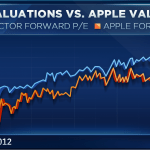U.S. equities are being pressured once again by falling oil prices, Art Cashin, UBS’ director of floor operations, said Monday.
“If WTI breaks below $37, it will put some extra weight on the market. I think they’re still trying to absorb those two big up days that they had. We may have cheated Santa Claus out of a couple of days by doing that,” Cashin told CNBC’s “Squawk on the Street.”
U.S. crude prices fell more than 3 percent Monday, trading at around $36.90 a barrel, struggling to hold on to its premium on Brent. The sharp move lower comes after WTI futures closed sharply higher on both Wednesday and Thursday. (All financial markets were closed Friday due to the Christmas holiday.)
Brent and WTI remain 45 percent and 39 percent lower for the year, respectively.
“You look at the first half of 2016, and there’s likely going to be continued supplied pressures, but when you reach the back-half of 2016, it’s likely that those supply pressures are going to begin to diminish, and we’ll find a better balance there,” Jason Pride, director of investment strategy at Glenmede Trust Co., said Monday in another “Squawk on the Street” interview.
Pride also said the environment for investors will remain favorable in the near future. “This environment really sets up an investor to really continue to participate in a growing economic expansion, but we have to recognize that the Fed is starting to clamp down on the margin; that we are relatively longer-term economic expansion.”
However, Chad Morganlander of Washington Crossing Advisors, advised investors to be cautious. “Our position for 2016 is, again, to be more pragmatic and balanced in the portfolio. We’re moving up the quality spectrum, looking at companies that have much less volatility, so we’d be going with the big blue-chip names,” he said Monday.
The Federal Reserve raised rates for the first time in nearly a decade on Dec. 16.
Stocks traded lower on Monday, with the Dow Jones industrial averagebriefly falling more than 100 points, as Goldman Sachs and Chevroncontributed the most losses to the blue-chips index
[“source -cncb”]







